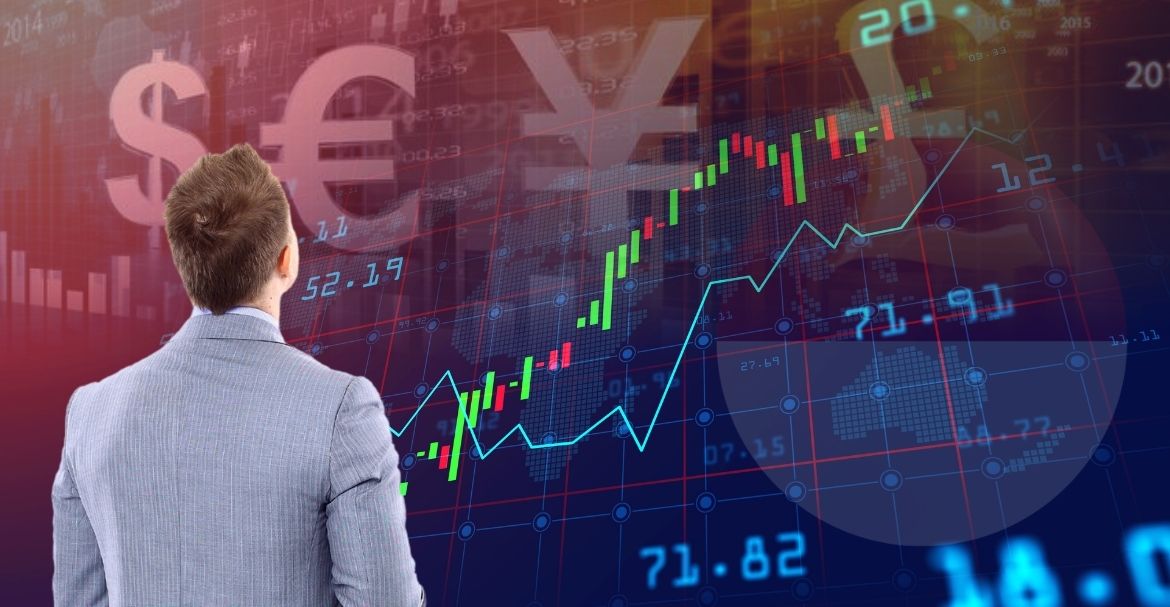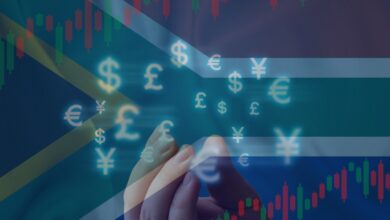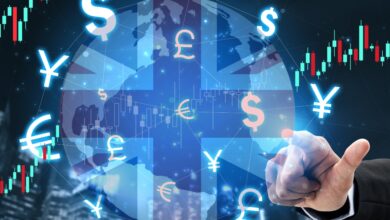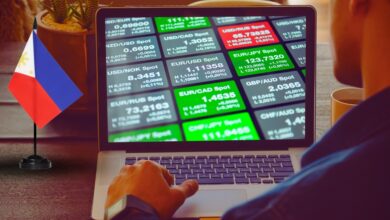Is Indonesia a good country to invest in forex trading?

In addition to understanding the risks associated with forex trading, traders must be aware of the available trading tools and strategies to help them make more informed decisions. Technical analysis, for example, is an essential tool that enables traders to identify trends in price movements and plan their trades accordingly. Fundamental analysis helps traders understand economic events and how they will likely influence currency prices. Finally, risk management is essential for keeping losses manageable while maximizing potential profits. By using these tools together, Forex traders Indonesia can significantly improve their chances of success when engaging in online currency trading.
Indonesia’s foreign exchange market is one of the largest in Southeast Asia, with a total daily trading volume of more than $115 billion. The Indonesian Rupiah (IDR) is the primary currency unit in all transactions. Investors can access various products such as stocks, bonds, commodities, derivatives, etc. Indonesia’s open economy encourages foreign investment, making it an attractive destination for international traders. The Bank of Indonesia (BI), the country’s central bank, manages monetary policy and maintains financial stability. BI also sets the official benchmark rate for exchanging foreign currencies into IDR.
Indonesia’s Economic Environment Role
On the plus side, GDP growth of 5.02% and a strong service sector performance supported economic activity throughout the year. The manufacturing and construction sectors also posted modest gains, while agricultural output rose slightly. The government provided fuel subsidies to support consumer spending, and additional tax cuts for businesses helped attract foreign investment into Indonesia’s economy. These measures contributed to an increase in real wages for many Indonesian workers throughout 2022.
The downside, however, was that inflation had risen above 4%, driven mainly by food prices which increased due to supply chain disruption caused by El Nino effects on agriculture production and increased demand from a growing population with higher disposable incomes. This led to rising costs being passed onto consumers through higher retail prices or reduced access to goods in some areas of Indonesia, particularly remote rural communities with limited access due to inadequate infrastructure networks. Indonesia has also taken steps to improve the business environment through regulatory reform.
This includes streamlining licensing processes, reducing bureaucratic procedures, and improving business access to finance. The government is committed to enabling entrepreneurs and small-to-medium enterprises (SMEs) to thrive in the country’s dynamic marketplace. The Indonesian economy is now well positioned for sustained growth due to structural reforms, sound macroeconomic policies, strong domestic demand, and rising foreign direct investment. This has enabled Indonesia’s economy to become one of Southeast Asia’s most vibrant markets in recent years; with its population rapidly growing into one of the world’s largest middle classes – it looks set for even greater success in the future.
Additionally, Indonesia has a robust financial system with strong government regulations to protect investors. The central bank of Indonesia is responsible for the stability and soundness of the banking sector, which includes both local and foreign banks. It also regulates capital markets, investment products, and insurance companies. All these measures help create an enabling environment for businesses looking to expand into Indonesia or establish operations there.
Regulations and Legal Framework in Indonesia
The country is also one of the most diverse economies in the world, offering a wide range of business opportunities. In addition, Indonesia’s large population provides tremendous potential for growth and development. With abundant natural resources such as oil and gas, coal, timber, and minerals, it has become an attractive destination for international investments. Its strategic location between Asia Pacific nations provides access to growing markets that are increasingly important for global trade.
Moreover, Indonesia’s infrastructure continues to be upgraded across all sectors, including transport links between islands with modern ports allowing faster goods movement into export markets abroad. Furthermore, its low labor costs compared to other countries make it an attractive option for multinational companies looking to expand their operations or set up shop here while still enjoying cost advantages.
Countries tend to have specific regulations and broker licensing requirements, so it is essential to research these rules before investing with an offshore forex broker in Indonesia. Most countries require a minimum amount of capital from the broker before granting them a license, as well as ongoing reporting requirements for financial records and compliance with applicable laws. Additionally, most countries require brokers to register with local securities regulators or pass additional exams to be eligible for trading privileges. This helps ensure that the forex market remains fair and safe for all involved parties.
Advantages of Investing in Forex Trading in Indonesia
Indonesia’s stock market, one of the largest in Southeast Asia, is home to a wide variety of stocks from both domestic and foreign companies. The Jakarta Stock Exchange (JSX) houses some of the most heavily traded stocks in the region, including blue chips like Bank Central Asia (BCA), Telkomsel, and Astra International. The Indonesian bond market offers investors access to government bonds with maturities ranging from 1 month to 10 years. These bonds are issued by either local or global issuers and can be purchased through various brokerages such as DBS Vickers Securities or BNI Sekuritas. Bonds offer higher yields than bank deposits but involve more significant risks due to their longer maturity dates and sensitivity to changing interest rates.
Indonesia also has a robust derivatives currency market that includes futures contracts on commodities such as palm oil, rubber, crude oil, gold, and silver; currency pairs such as USD/IDR; indices such as JSX Composite Index; debt securities like corporate bonds; equity options on individual stocks listed at JSX; and mutual funds investing in various asset classes across global markets. Because of Indonesia’s proximity to other countries in the Southeast Asian region and its growing economy, many currency pairs on offer can provide excellent trading opportunities. As a result, traders must familiarise themselves with these markets before committing any capital.
Indonesian Forex brokers are responsible for offering various helpful services, including educational resources, so traders can better understand their investments and develop effective strategies to optimize their profits. Leverage is also widely available, which allows traders to open more prominent positions with limited capital by borrowing additional funds from the broker based on margin requirements; this feature should be used cautiously, however, as losses could exceed deposits if not adequately managed.
The goal was to make it easier for Indonesian businesses to access capital and reduce borrowing costs. To achieve this, the government lowered interest rates, reduced taxes on foreign investors, and made credit more widely available by allowing banks to issue longer-term loans with lower minimums. This has increased investment in Indonesia by domestic and foreign investors, which has helped fuel economic growth. Lower capital requirements have also enabled small businesses in Indonesia to become more competitive as they can now better access funds needed for their operations or expansion projects. Ultimately, these lower capital requirements are helping drive job creation throughout Indonesia and providing more significant opportunities for its citizens.
Risks of Investing in Forex Trading in Indonesia
Investors, regulators, and stock exchanges are pushing for more stringent rules on reporting of corporate information and increased oversight by the Financial Services Authority (OJK). The OJK has proposed stricter regulations that impose more rigorous due diligence requirements on listed companies. This requires them to disclose any significant changes in their business activities, including related party transactions or significant investments.
Furthermore, auditors must also certify that these disclosures are accurate and valid before they can be published. In addition, investors will soon be able to access detailed market data from Indonesian securities exchanges through the new Investor Portal launched by Indonesia’s Stock Exchange (IDX). With greater access to reliable market data, investors can make informed investment decisions during heightened volatility.
In today’s globalized world, companies are exposed to exchange rate risk when dealing with international customers, suppliers, or partners. Indonesia’s relatively unstable currency makes it difficult for businesses to predict their costs and profits from day-to-day transactions accurately. Companies can manage this risk by using various hedging instruments, such as forward contracts and options. These strategies allow them to lock in an exchange rate that they are comfortable with and ensure that their bottom line is not affected by sudden swings in the foreign exchange market.
Additionally, some local banks offer services such as currency swaps which help firms reduce their exposure even further. By proactively managing foreign exchange risks through these methods, companies can minimize losses associated with unfavorable movements of currencies relative to each other.
The government is unpredictable at times and can change regulations without warning, which could drastically impact companies’ operations. For example, recently, there have been several sudden changes to labor laws which led to a decrease in foreign investment within the country due to increased uncertainty about future policies. To navigate these shifting regulatory environments, businesses must maintain close communication with relevant government agencies and stay informed of any policy changes that may affect their operations. Additionally, business owners need to ensure they understand all applicable regulations before entering into agreements or commencing projects in Indonesia so as not to run afoul of potentially costly noncompliance issues.
Conclusion
In conclusion, Indonesia is a great country to invest in forex trading. It has low taxes and a strong economy, and the Indonesian government has taken steps to ensure that Indonesian traders can enjoy secure transactions with reliable brokers. The nation also offers access to some of the most competitive currency pairs available on the global market, making it an ideal choice for traders looking for profitable opportunities.
With its growing population and rapidly expanding middle class, investing in Indonesia’s forex industry could prove highly lucrative in the long run.
Utilize a demo account to practice your strategies, or even consider using a reliable forex broker that can provide guidance and advice on trading in Indonesia.
Read the rules and regulations around investing in the country before committing any money. Keep an eye on news events related to currency movements and central bank activities, so you can stay informed of any changes that could affect your trading activity. Finally, don’t forget that diversification is critical for forex investments, so try not to put all your eggs in one basket!



